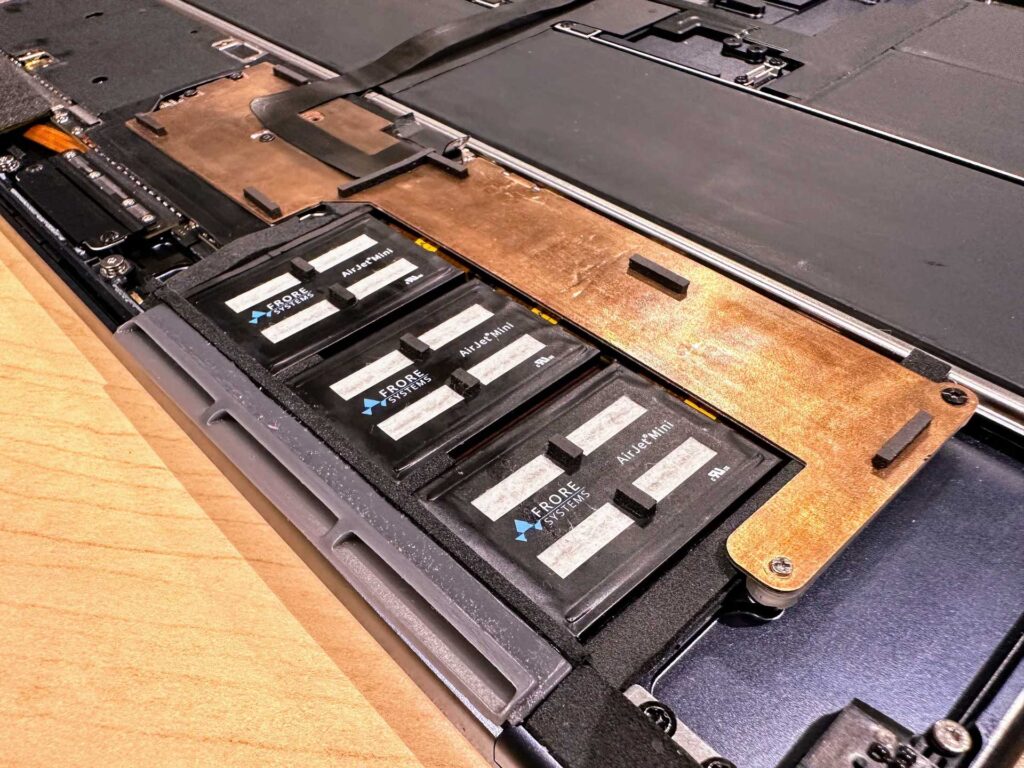AirJet Mini by Frore Systems: A Breakthrough in Active Cooling for MacBook Air. Frore Systems, an innovative American startup, has recently made waves in the tech industry with its groundbreaking AirJet Mini, a potential game-changer in active cooling systems for devices like the MacBook Air. Having secured a substantial $116 million in funding, the company’s debut product, the AirJet Mini, is a marvel of engineering. It’s a lightweight, solid-state system designed to enhance heat expulsion from slim devices such as the MacBook Air. This system operates through a unique mechanism involving membranes to move and expel hot air, effectively overcoming the thermal limitations of traditional cooling systems and reducing the frequency drops caused by overheating or high power consumption, a phenomenon known as “throttling.”
EPOMAKER TH80 Pro: Redefining Mechanical Keyboard Comfort
The AirJet Mini’s efficacy was demonstrated on a 15″ MacBook Air M2, as observed by an editor from The Verge. This system enables the device to handle intensive tasks at higher speeds for extended periods. While the benefits of such a cooling system might not be immediately noticeable during regular use, its impact becomes apparent during CPU-intensive processes. The AirJet Mini helps maintain consistent performance without the need for gradual core speed reductions.

In a comparative test involving a specially modified MacBook Air, the difference between using the AirJet Mini and not using any cooling system was significant. Benchmarks like Cinebench R23 showed a notable improvement in scores (8775 vs. 8380) after repeated tests. Additionally, performance tests with Xcode completed more quickly with the AirJet Mini (172.7 seconds) compared to the MacBook Air without any cooling system (178.2 seconds). While these results may not seem dramatic, they hint at the potential for future devices. If Apple were to integrate such a cooling system into its designs, along with other component layout optimizations, the performance gains could be even more substantial.
This development sheds light on the performance disparities between devices like the MacBook Air, which traditionally rely on passive cooling, and those like the MacBook Pro that include dedicated cooling systems. The latter can sustain peak performance under prolonged stress, a feat not possible with passive cooling methods. The introduction of the AirJet Mini by Frore Systems marks a significant step forward in the evolution of device cooling technologies, promising enhanced performance and efficiency for future generations of thin and light computing devices.
